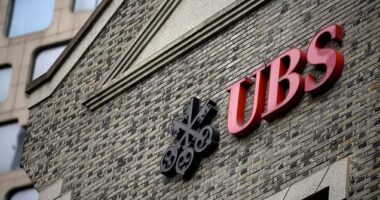
Savers with money in easy-access accounts run by the High Street banks should continue to seek better interest rates elsewhere.
This is despite some of the banks responding to recent criticism from politicians and the regulator by stating they are raising rates on these accounts.
Savers hold £860 billion in easy-access accounts, amounting to about two-thirds of all the money saved with banks. But the deals are universally poor.
The banks are currently paying little more than 1 per cent interest. This is less than half the 2.49 per cent average easy-access rate paid on these accounts across the market, according to financial data scrutineer Moneyfacts.
It is also a quarter of the interest you could earn by shopping around for a best-buy easy-access account.


Rock-bottom rates: Savers hold £86bn in easy-access accounts, amounting to about two-thirds of all the money saved with banks. But the deals are universally poor
For example, Shawbrook Bank pays 4.35 per cent interest.
Savers in some High Street bank easy-access accounts must wait until a week tomorrow for their rates to rise — and even then they may only earn 1.1 per cent.
Lloyds, which owns both the Halifax and Bank of Scotland, offers easy-access accounts Halifax Everyday Saver and Bank of Scotland Access Saver.
From Thursday week, it will pay 1.15 per cent on balances up to £10,000, 1.25 per cent if you have between £10,000 and £49,999 in your account and 1.65 per cent on £50,000 or more.
This will mean that for these two accounts, Lloyds has passed on just a third of rate hikes — 0.55 percentage points of the 1.5 per cent rate rise since January.
Savers in Lloyds Easy Saver are also getting a rum deal. The rate on balances up to £25,000 will move to 1.1 per cent, a rise of just 0.6 points so far this year. The rate rises to just 1.35 per cent on sums between £25,000 and £100,000 and 1.8 per cent over that level.
NatWest rates increase from tomorrow, but it will still pay as little as 1.4 per cent on its Flexible Saver and Instant Saver accounts on sums up to £25,000 — an extra 0.9 points this year so far. Even if you have £250,000 in your account, your rate is only 3.1 per cent.
Barclays raised the rate on its Everyday Saver earlier this month to 1 per cent. Santander’s Everyday Saver and Instant Saver pays a miserly 0.85 per cent, having passed on just 0.4 points of the increase in the base rate.
HSBC is the best of a bad bunch paying 1.75 per cent on £1 or more on its Flexible Saver account.
Furthermore, if you have a current account with the bank, you can earn 4 per cent on up to £50,000 in its online Bonus Saver — but only if you don’t touch your money. In any month you make a withdrawal, the rate drops to 1.75 per cent.
The feeble increases will do little to quell the wrath of those who believe the banks should be paying better savings rates.
Six days ago, the chief executives of the big banks were hauled in by the Financial Conduct Authority and asked what they were doing to give savers a fairer deal.
That followed pressure from the Treasury Select Committee. Harriett Baldwin MP, the committee’s chair, said: ‘With interest rates on the rise and our constituents feeling squeezed by rising prices, it is only right that the UK’s biggest banks step up their measly easy-access savings rates. The time for action is now.’
The big five banks posted combined profits of more than £5 billion in the first quarter of this year.
However, some new fixed-rate accounts are more competitive. Halifax, Lloyds Bank and Bank of Scotland will today launch new fixed-rate Isas.
At Halifax the tax-free rate is 5.3 per cent for a one-year fixed-rate bond — 5.35 per cent for two years. Respective rates for Lloyds and Bank of Scotland fixed-rate Isas are 5.45 per cent and 5.5 per cent.









